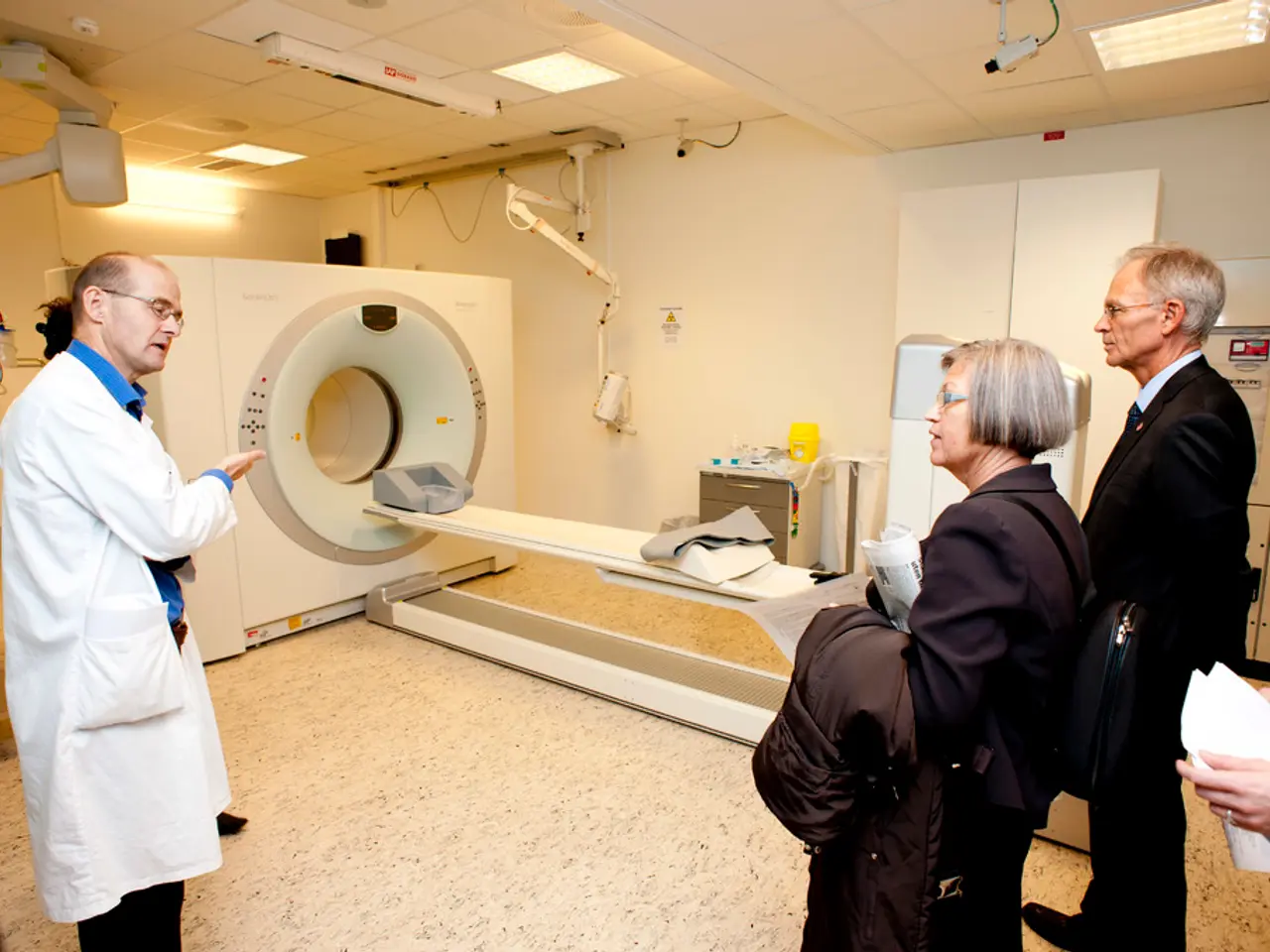Controversy over the recent regulations
In a move that has raised concerns among local officials and medical professionals, the Baden-Württemberg Association of Statutory Health Insurance Physicians (KV) has decided to centralize the medical on-call service, with the relocation to Offenburg set to commence on September 1st.
The mayors of Rastatt, Gaggenau, and Bühl, along with the district administrator, have penned an open letter to the KV, expressing their initial support for the aim to establish a more efficient control of on-call services, but voicing their concerns about the potential negative effects on patient care.
The centralization of the service may result in reduced local control and oversight of emergency medical services, potentially compromising the responsiveness and tailored care needed for specific communities. This is a concern shared by the Rastatt district association of the German Association of Towns and Municipalities, which has criticized the lack of involvement of doctors and the loss of the Rastatt support point with its corresponding vehicle.
The travel time from Offenburg to the outlying areas can be over an hour, which could significantly reduce the level of care, according to the local medical association. This concern is based on the fact that four doctors will start from Offenburg between 6 PM and 11 PM, and two doctors will start from there between 11 PM and 6 AM, to cover the entire district of Rastatt, the city of Baden-Baden, and the district of Ortenau.
The mayors, district administrator, and the Rastatt district association share the concern that the experiences and warnings of doctors who are already at their limit should be taken into account to ensure high-quality care for the population in the future.
This proposal, if implemented, could significantly reduce response times. However, the mayors and district administrator were not informed about the specific details of the implementation, particularly the central relocation of the on-call service support point to Offenburg.
The open letter from the medical spokesman Schönits, supported by more than 70 colleagues in the district, was reportedly addressed to the KV. The letter urges the KV to seriously consider this proposal as part of the pilot project, and supports the doctors' proposal to keep one of the on-call service vehicles in Rastatt, in addition to Offenburg.
This controversy highlights a commonly recognized tension point in healthcare administration reforms, especially when emergency services involved are critical to public health and safety. For further details on this case, it would be necessary to review local news sources or official statements from the Baden-Württemberg KV, district administrators, and doctors directly involved, as the provided results focus more on broader medical and administrative topics in Germany without discussing this issue explicitly.
- The centralization of the medical on-call service in Offenburg, while intended to enhance efficiency, could potentially lead to a substantive impact on health-and-wellness, particularly due to increased travel times and potential compromises in tailored care for specific communities, as voiced by local officials and medical professionals.
- In addressing the concerns of the Rastatt district association, the German Association of Towns and Municipalities, and local medical professionals, it is crucial that the Baden-Württemberg Association of Statutory Health Insurance Physicians (KV) considers alternative strategies for the on-call service, such as maintaining an on-call service vehicle in Rastatt, in addition to Offenburg, to ensure other science-based adjustments can cater to diverse medical-conditions and needs to preserve high-quality care for the population.




